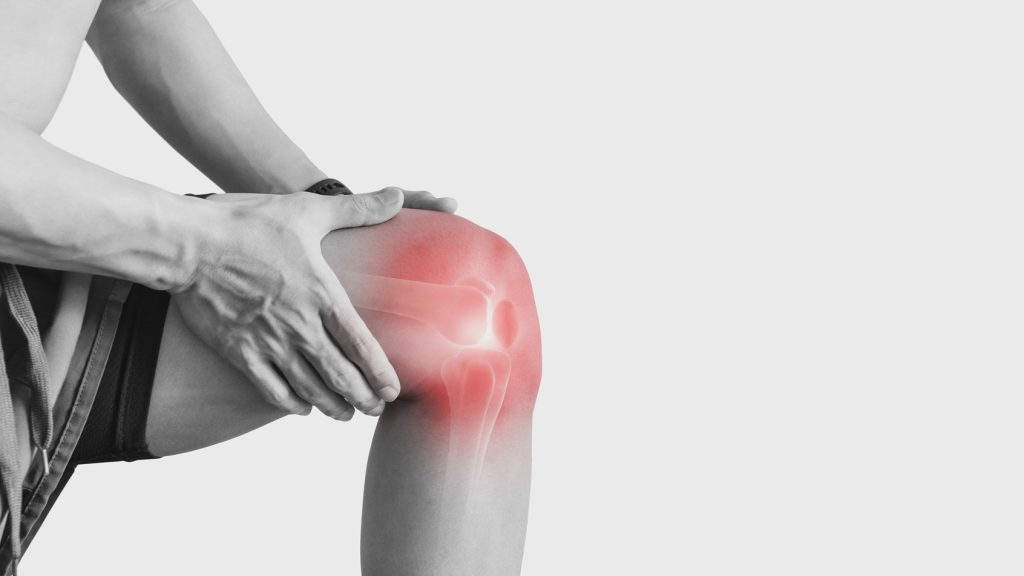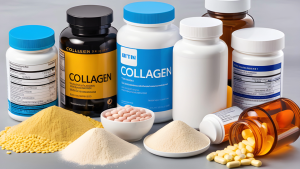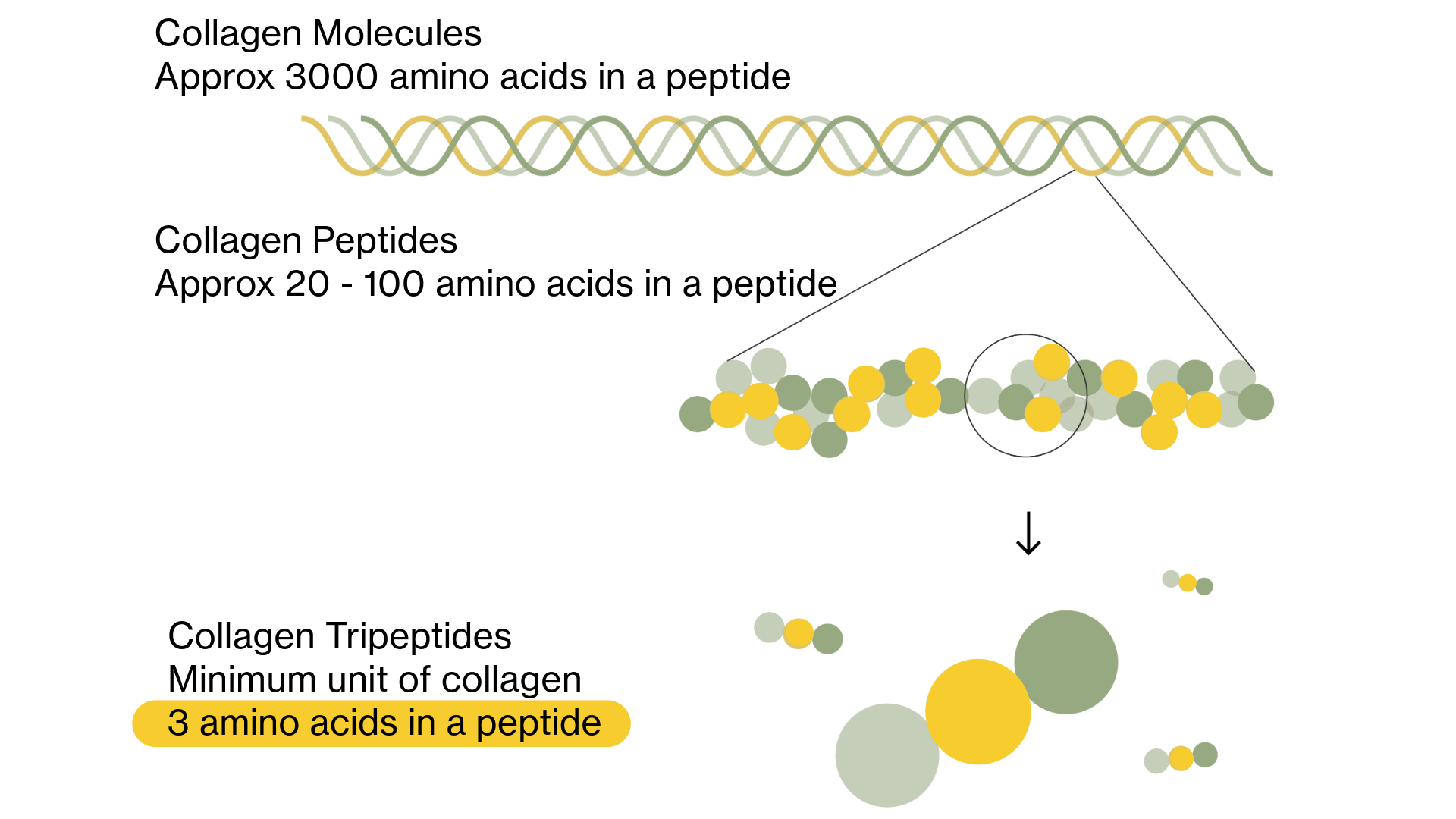Collagen Tripeptides vs. Normal Collagen

Professor Mohammad Najlah
BPharm, PgDip, PhD, FHEA, CChem, FRSC
Collagen is the most abundant protein in the human body, forming the structural framework for skin, joints, bones, and connective tissues. As we age, collagen production declines, leading to wrinkles, joint pain, and reduced bone strength.
External factors such as UV radiation, smoking, and poor diet can accelerate this decline, making collagen supplementation an attractive option. Among the various types of collagen supplements available, collagen tripeptides (CTP) have been marketed as a superior alternative to standard hydrolysed collagen peptides, promising higher absorption and greater efficacy.

What is Collagen and How Does It Work?
Collagen is naturally produced by fibroblast cells, but its synthesis decreases by approximately one percent per year after the age of 20 (Proksch et al., 2014). The body contains at least 28 different types of collagen, with type I being the most prevalent in skin, bones, and tendons. Type II is primarily found in cartilage and plays a role in joint health, while type III supports skin elasticity and is found in blood vessels and internal organs.
The primary role of collagen is to provide structural support and maintain tissue integrity. However, as collagen production slows with age, its breakdown surpasses synthesis, leading to visible and functional signs of aging.

Collagen supplements claim to restore lost collagen, but their effectiveness depends on how well they are absorbed and utilised in the body. Traditional hydrolysed collagen peptides consist of broken-down protein chains that require further enzymatic digestion before they can be absorbed and incorporated into tissues.
In contrast, collagen tripeptides are composed of specific three-amino acid sequences (Gly-Pro-Hyp) that can be directly absorbed into the bloodstream without additional breakdown (Ohara et al., 2007). Some studies suggest that CTP is four to ten times more bioavailable than standard collagen peptides (Yamamoto et al., 2016).
A study published in The Journal of Agricultural and Food Chemistry found that collagen tripeptides were detectable in the bloodstream within 30 minutes, whereas normal collagen peptides took longer and were less efficiently absorbed (Ohara et al., 2007).
Do Collagen Tripeptides Offer Better Health Benefits?
One of the most visible effects of collagen loss is skin aging, leading to dryness, reduced elasticity, and increased wrinkle formation. Several studies have examined the effects of collagen supplementation on skin health. A twelve-week randomised controlled trial published in Nutrients found that collagen tripeptides significantly improved skin hydration and elasticity compared to standard collagen peptides (Kim et al., 2018).
The Journal of Functional Foods reported that CTP supplementation reduced wrinkles and improved skin texture within just four weeks, while normal collagen took longer to show noticeable results (Ohara et al., 2010). However, many clinical trials on collagen supplementation are short-term, typically spanning only eight to twelve weeks. The long-term effects of continued collagen use remain uncertain, and individual responses to collagen supplementation vary depending on factors such as diet, genetics, and overall skin health.
Collagen synthesis is heavily dependent on other nutrients such as vitamin C and hyaluronic acid, which play a crucial role in collagen stability and production (Pullar et al., 2017).
Beyond skin health, collagen plays an essential role in maintaining cartilage, tendons, and bone structure. As collagen levels decline, joint stiffness and osteoporosis become more prevalent. A study in Osteoarthritis and Cartilage found that collagen tripeptides significantly reduced joint pain and improved flexibility in individuals with osteoarthritis compared to standard collagen peptides (Moskowitz, 2000). A study in BioFactors suggested that CTP increased bone mineral density and stimulated osteoblast activity, potentially reducing the risk of osteoporosis (Yamamoto et al., 2016). However, while collagen may contribute to joint and bone health, it is not the sole factor. Other nutrients, such as calcium, vitamin D, and magnesium, play a crucial role in maintaining bone integrity (Katsumata et al., 2009). Furthermore, studies comparing collagen tripeptides with other joint-supporting supplements such as glucosamine and chondroitin are still lacking.
Collagen has also been associated with improved wound healing and muscle recovery. Research suggests that collagen tripeptides may accelerate tissue regeneration. A study published in Wound Repair and Regeneration found that collagen tripeptides enhanced wound healing by promoting fibroblast migration and collagen synthesis (Shigemura et al., 2009). While these findings suggest potential benefits, wound healing and muscle recovery depend on a variety of factors, including protein intake, hydration, and overall nutrition.

Are Collagen Tripeptides Worth the Cost?
One key consideration when choosing collagen supplements is cost. Hydrolysed collagen peptides are widely available and relatively affordable, while collagen tripeptides are positioned as a premium supplement and tend to be significantly more expensive. Although higher bioavailability means that lower doses of CTP are required to achieve similar effects, it is unclear whether the price increase is justified by significantly better results. Some consumers may see improvements with standard collagen peptides without needing to pay the premium for collagen tripeptides.
Another factor to consider is whether collagen supplementation is the best approach to maintaining healthy skin, joints, and bones. Alternatives such as vitamin C, which is essential for collagen production, and hyaluronic acid, which supports skin hydration and elasticity, may offer additional benefits (Huang et al., 2019). Marine collagen, sourced from fish, has also been found to be more bioavailable than bovine collagen, though direct comparisons with collagen tripeptides remain limited (Borumand & Sibilla, 2015).

Final Verdict: Should You Choose Collagen Tripeptides Over Normal Collagen?
Collagen tripeptides appear to have a higher absorption rate and may deliver results more quickly than standard hydrolysed collagen peptides. Studies suggest they could offer benefits for skin hydration, joint health, and wound healing, but the evidence is still evolving, particularly for long-term use. While collagen tripeptides may be an effective option for those looking for a high-absorption collagen supplement, the price difference raises questions about cost-effectiveness.
For individuals looking to support collagen levels, a well-rounded approach that includes collagen supplementation along with vitamin C, hyaluronic acid, and a nutrient-rich diet may be more beneficial than relying on collagen alone. More long-term studies are needed to determine whether collagen tripeptides provide a significant advantage over normal collagen peptides beyond faster absorption.
References
Borumand, M., & Sibilla, S. (2015). “Daily consumption of hydrolysed fish collagen improves skin elasticity and reduces wrinkles.” Clinical Interventions in Aging, 10, 267–273.
Huang, H. Y., et al. (2019). “Effects of hyaluronic acid on skin hydration and elasticity: A randomized controlled trial.” Dermatologic Therapy, 32(2), e12745.
Kim, D., et al. (2018). “Effects of collagen tripeptide supplement on skin hydration and elasticity.” Nutrients, 10(7), 826.
Moskowitz, R. W. (2000). “Role of collagen hydrolysate in bone and joint disease.” Osteoarthritis and Cartilage, 8(5), 48–50.
Ohara, H., et al. (2007). “Collagen-derived dipeptide and tripeptide absorption and their effects on collagen synthesis in skin fibroblasts.” Journal of Agricultural and Food Chemistry, 55(4), 1532–1535.
Proksch, E., et al. (2014). “Oral supplementation of collagen peptides improves skin elasticity and hydration.” Skin Pharmacology and Physiology, 27(3), 113–119.
Pullar, J. M., Carr, A. C., & Vissers, M. C. M. (2017). “The roles of vitamin C in skin health.” Nutrients, 9(8), 866.
Yamamoto, S., et al. (2016). “Collagen tripeptide improves bone density and flexibility.” BioFactors, 42(5), 489–497.
Collagen FAQ
What is a collagen tripeptide?
A collagen tripeptide (CTP) is a highly bioavailable form of collagen that consists of three amino acids (tripeptides) derived from collagen hydrolysis. These tripeptides are typically composed of glycine (Gly), proline (Pro), and hydroxyproline (Hyp) in various sequences, which are the primary building blocks of collagen in the body.
Which form of collagen is most effective?
The most effective form of collagen depends on the intended health benefits. Different types of collagen serve different functions in the body but hydrolysed collagen (collagen peptides) and collagen tripeptides (CTP) are widely considered the most bioavailable and effective due to their superior absorption.
What does tripeptide do for skin?
Collagen tripeptides (CTP) offer powerful benefits for the skin, primarily by stimulating collagen production and improving overall skin health. Since they are highly bioavailable due to their small molecular size, they are absorbed quickly and directly used by skin cells.
Key Skin Benefits of Collagen Tripeptides (CTP):
→ Boosts Collagen Synthesis
- CTP directly stimulates fibroblasts, the skin cells responsible for producing collagen, leading to firmer and more youthful skin.
→ Reduces Wrinkles & Fine Lines
- By increasing collagen density in the skin, CTP helps smooth out wrinkles and fine lines, improving skin texture.
→ Enhances Skin Elasticity & Firmness
- Supports the elastic fibres in the skin, making it more resilient and preventing sagging.
→ Deep Hydration & Moisture Retention
- Promotes hyaluronic acid production, which helps the skin retain moisture, giving it a plumper and more hydrated look.
→ Accelerates Wound Healing & Skin Repair
- Helps in the regeneration of damaged skin, making it beneficial for scars, wounds, and even post-procedure recovery.
→ Protects Against UV Damage & Ageing
- Some studies suggest CTP may have antioxidant properties, helping to reduce skin damage from UV rays and oxidative stress.
What does tripeptide do for hair?
Collagen tripeptides (CTP) support hair strength, growth and resilience by nourishing hair follicles from the inside out. Their bioactive peptides deliver key amino acids like proline and glycine, which are crucial for keratin production and hair follicle health.
Key Hair Benefits of Collagen Tripeptides (CTP):
→ Strengthens Hair Structure
Provides amino acids that reinforce the hair shaft and support the structural integrity of strands.
→ Promotes Hair Growth
Encourages the activity of dermal papilla cells in hair follicles, which are responsible for new hair production.
→ Reduces Hair Thinning & Breakage
Improves elasticity and hydration within hair fibres, helping reduce dryness and brittleness.
→ Supports Scalp Circulation
May enhance blood flow to the scalp, delivering more oxygen and nutrients to hair roots for healthier, fuller growth.
What does tripeptide do for nails?
CTP promotes stronger, smoother and faster-growing nails by boosting keratin synthesis and reinforcing the nail matrix. Over time, it helps reduce signs of brittleness and fragility, often caused by nutrient deficiencies or ageing.
Key Nail Benefits of Collagen Tripeptides (CTP):
→ Strengthens Nail Plates
Delivers the proteins necessary for keratin formation, improving hardness and durability.
→ Reduces Brittleness & Splitting
Hydrates and strengthens nail layers, minimising common issues like peeling and cracking.
→ Speeds Up Nail Growth
Encourages faster nail regeneration by supporting healthy cellular turnover in nail beds.
→ Improves Overall Appearance
Healthier nails grow smoother and more evenly, reducing ridges and surface irregularities.
What does tripeptide do for joints?
CTP aids in maintaining healthy joints by supporting cartilage regeneration and reducing inflammation. It helps protect against joint degradation and promotes flexibility and comfort, especially in active individuals and ageing adults.
Key Joint Benefits of Collagen Tripeptides (CTP):
→ Rebuilds Joint Cartilage
Stimulates chondrocytes, the cells responsible for producing cartilage, aiding in joint cushioning.
→ Reduces Joint Pain & Stiffness
May help decrease joint discomfort caused by inflammation or overuse.
→ Supports Flexibility & Range of Motion
Improves joint fluidity and movement, especially beneficial for athletes and people with osteoarthritis.
→ Protects Against Wear-and-Tear
Provides ongoing structural support to joints, reducing the breakdown of connective tissue over time.
What does tripeptide do for bones?
Bones are made up of nearly 90% collagen, making CTP a vital supplement for bone strength and resilience. It supports bone mineral density and may help prevent bone loss in ageing populations.
Key Bone Benefits of Collagen Tripeptides (CTP):
→ Stimulates Bone Matrix Formation
Promotes osteoblast activity (bone-building cells), improving the structural foundation of bones.
→ Increases Bone Mineral Density
Supports calcium and phosphorus retention in bones, helping reduce the risk of osteoporosis.
→ Enhances Bone Strength & Flexibility
Improves the quality of bone collagen, which contributes to shock absorption and resilience.
→ Prevents Age-Related Bone Loss
Regular CTP supplementation may reduce the rate of bone degeneration and fractures.
What does tripeptide do for muscles?
Collagen tripeptides play a supportive role in muscle repair and lean mass preservation by nourishing connective tissues and tendons that surround muscles.
Key Muscle Benefits of Collagen Tripeptides (CTP):
→ Supports Muscle Recovery
Speeds up the healing of microtears after exercise, reducing soreness and downtime.
→ Preserves Lean Muscle Mass
May support muscle maintenance in ageing adults by enhancing connective tissue integrity.
What does tripeptide do for gut health?
CTP may aid in digestive well-being by reinforcing the gut lining and promoting tissue repair within the gastrointestinal tract.
Key Gut Benefits of Collagen Tripeptides (CTP):
→ Supports Gut Lining Integrity
May help seal the gut lining, reducing symptoms of leaky gut or inflammation.
→ Promotes Digestive Comfort
Soothes and repairs intestinal tissues, potentially easing bloating and discomfort.

